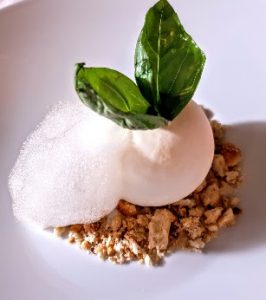World Food Day, held annually on 16 October, was created by the Food and Agriculture Organization (FAO) to raise awareness on the urgency of making healthy and sustainable diets affordable and accessible. As efforts for food & beverage sustainability gain momentum globally, many in the hospitality industry have also rallied behind the cause. From farm-to-table concepts to growing their own produce, WorldHotels showcases its commitment to reducing food waste and environmental conservation via a series of sustainable culinary activations in hotels globally.
Caravelle Saigon, Ho Chi Minh City, Vietnam

Caravelle Saigon leads the way in fulfilling its environmental duty while engaging guests in memorable culinary experiences. Elimination of food wastage is a top priority for the hotel, with measures such as a “cooked to order” buffet, repurposing food waste as animal feed in local farms and the classification of food waste. In addition, the hotel has also cut down on single-use plastics, opting to use stainless steel and paper straws for beverages and paper boxes for takeaway food. Not forgetting to celebrate the spirit of charity, the hotel also regularly holds charity events where food is prepared and served to those in the less fortunate communities.
The Woodlands Resort, Texas, USA

Robard’s, The Woodlands Resort’s luxury boutique steakhouse, has long been a pioneer in sustainable food practices. Under the direction of Executive Chef Paul McCabe, the restaurant embraces the farm-to-table philosophy and sources for fresh ingredients from the Gulf Coast area and from Kanaloa Seafood – the First Certified Sustainable Seafood Distributor in North America. Having worked with the Kanaloa team for the last 17 years of his culinary career, Chef McCabe has seamlessly integrated their seafood produce into Robard’s fresh-catch seafood menu. Notable dishes include the Shellfish Tower, which comes complete with jumbo shrimp, oysters, lobsters, and crab claws.
Grand Hotel de la Minerve, Rome, Italy

Paying particular attention to food nutrition and authenticity, Grand Hotel de la Minerve in Rome only uses organic and IGP products from the Lazio and Campania regions. With the IGP label, diners are guaranteed that at least one of the production phases of an ingredient happens in a recognized and specific geographical area, and that its quality, reputation or other characteristics can be attributed to its geographic origin. Using these high-quality ingredients, the hotel’s chefs are able to create mouthwatering dishes – such as Mozzarella cheese from Campania with tomatoes and double malt foam – that are both healthy and authentic.
Atrium Hotel Mainz, Mainz, Germany

Dedicated to environmental conservation and sustainable development, the Atrium Hotel Mainz ensures that most of their ingredients are procured from the region, as well as organic and fair trade. A Green Chef is also employed at Atrium Hotel Mainz. Green Chefs dedicate themselves to the respectful use of food, the avoidance of waste, regional purchasing, short transport routes and the use of domestic products. Additionally, the hotel owns two colonies of “Dark Bees”, which has not only enabled the hotel to use its own honey, but also contributed to species conservation. In recognition of its environmental protection efforts in energy and water consumption as well as food and waste reduction, Atrium Hotel Mainz has been duly certified by the DEHOGA Environmental Check.
The Rilano Hotel Munich, Munich, Germany

Going the extra mile in its efforts to contribute to food sustainability, The Rilano Hotel Munich grows its own spices and herbs right in the middle of its courtyard. In addition to guests being treated to a delightful meal prepared with the freshest ingredients, this green practice by the hotel also goes a long way in helping to reduce food wastage and greenhouse gas emissions.
The Rilano Hotel Hamburg, Hamburg, Germany

Food wastage along the value chain – from field to fork – not only wastes food, but also the resources that were utilized in food production. In fact, global food waste is responsible for a shocking 8 % of greenhouse gas emissions. Committed to eliminating food wastage, The Rilano Hotel Hamburg cooperates with Too Good To Go, an app which sells the hotel’s food surplus. The result is a win for all parties involved: consumers enjoy delicious food from the hotel at a lower price, the hotel eliminates food wastage, and earth’s precious resources are conserved.
Airport Hotel Basel, Basel, Switzerland

Airport Hotel Basel places a heavy emphasis on food sustainability as all F&B employees are required to attend a training course which educates them on reducing food wastage. For chefs, this includes carefully selecting the ingredients used in a new dish or menu, and making a conscious effort to order just the right amount of ingredients to reduce food waste. Not forgetting to involve guests in its environmental efforts, the hotel also displays a leaflet in the restaurant to educate guests about portion consciousness.
















